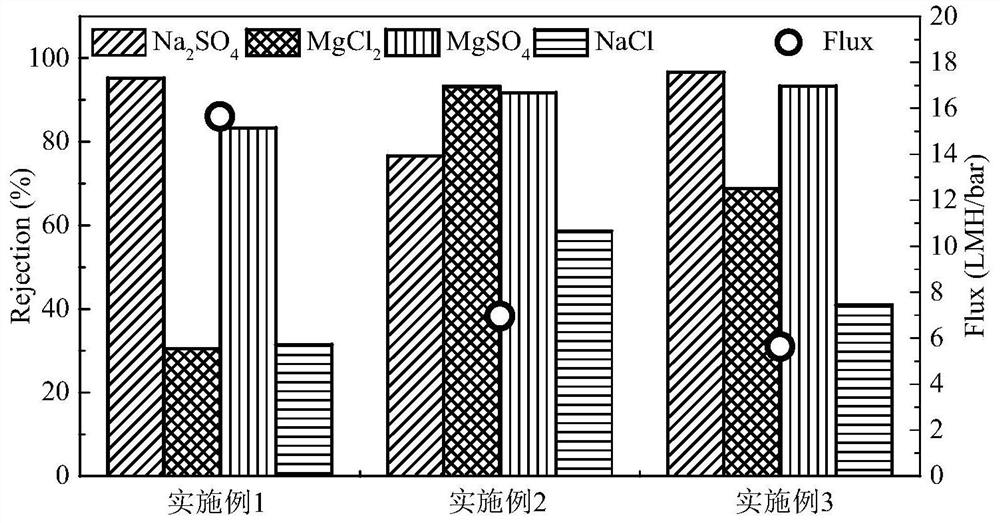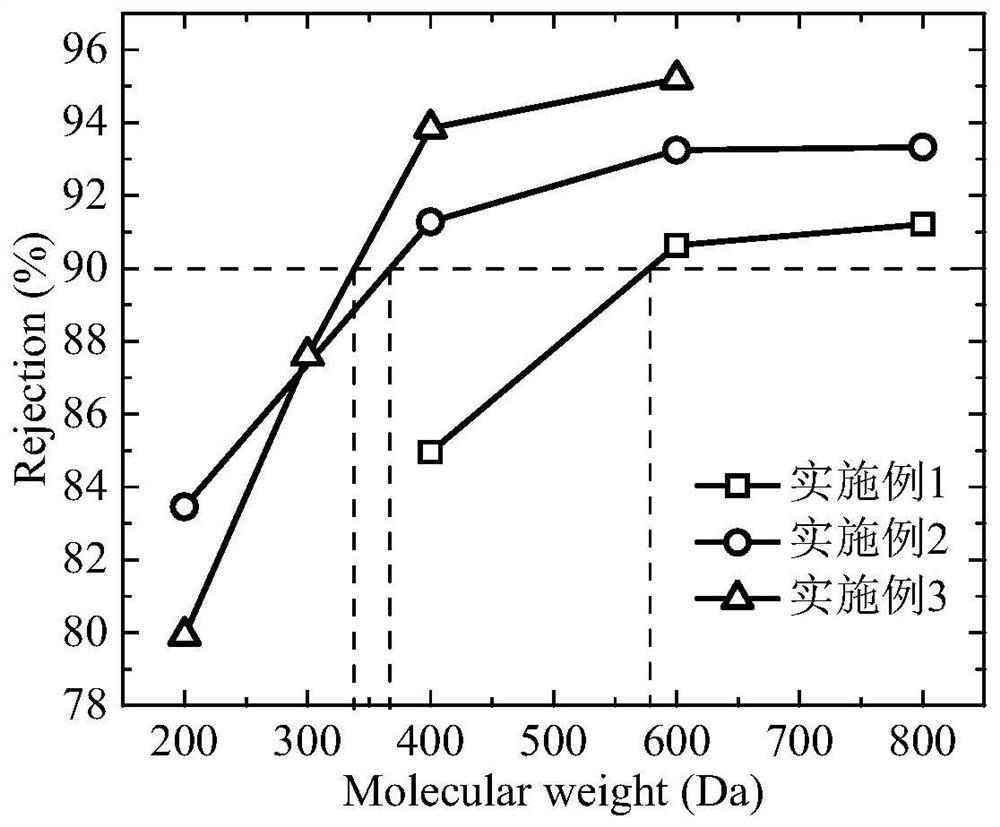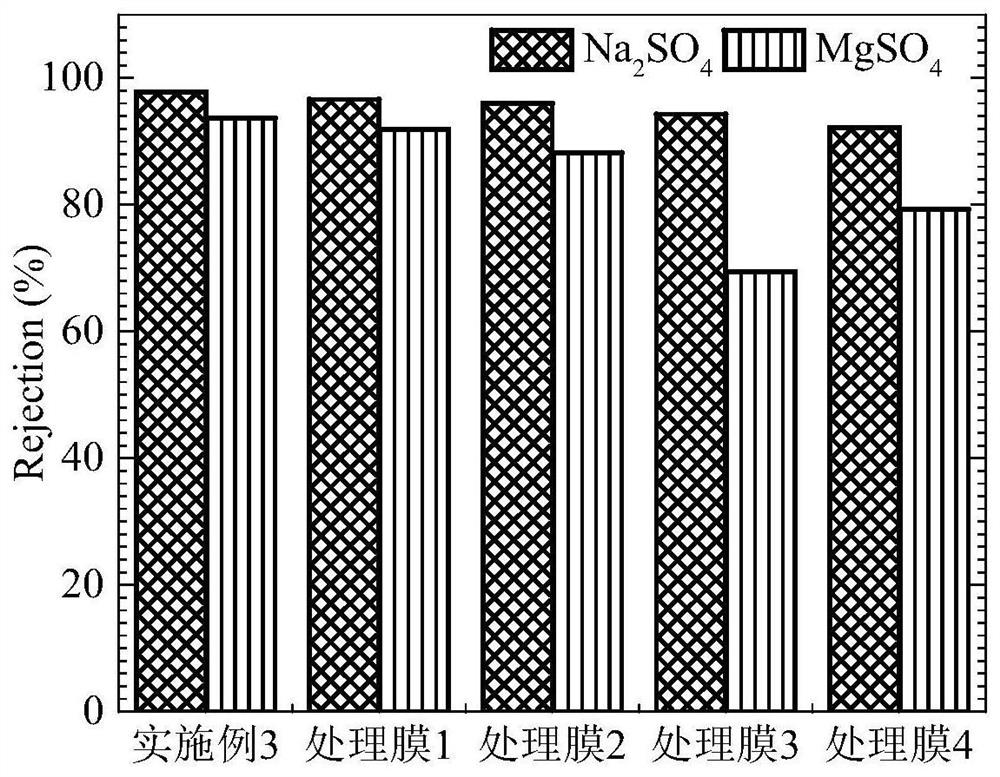A self-assembled nanofiltration membrane of mussel biomimetic assisted polyelectrolyte layer and its application
A layer-by-layer self-assembly, polyelectrolyte technology, applied in the field of separation membranes, can solve the problems of insufficient stability of nanofiltration membranes, insufficiency of acid and alkali, etc., and achieve the effects of improving stability, high rejection rate and good hydrophilicity
- Summary
- Abstract
- Description
- Claims
- Application Information
AI Technical Summary
Problems solved by technology
Method used
Image
Examples
Embodiment 1
[0040] A mussel biomimetic assisted polyelectrolyte layer-by-layer self-assembled nanofiltration membrane, the preparation process of which specifically includes the following steps:
[0041] (1) The polyethersulfone ultrafiltration membrane was wetted with 50% ethanol for 5 minutes, and then rinsed with deionized water for 3 times, each time for 5 minutes;
[0042] (2) Prepare a Tris buffer solution with a pH of 8.5, and add CuSO 4 with H 2 o 2 ; Dopamine and polyethyleneimine are successively dissolved in Tris buffer solution, and the preparation concentration of dopamine and polyethyleneimine is 2g / L;
[0043] (3) Sodium polystyrene sulfonate is dissolved in water and sodium chloride is added, and the pH of the mixed solution is adjusted to 2 after stirring evenly. Wherein, the concentration of sodium polystyrene sulfonate is 1.03g / L, and the concentration of sodium chloride is 0.5mol / L;
[0044] (4) Fix the base film after the wetting treatment in a reaction device tha...
Embodiment 2
[0048] The preparation process of the nanofiltration membrane described in this embodiment is the same as that of Example 1, except that polydopamine / polyethyleneimine and sodium polystyrene sulfonate are alternately repeated, that is, in the present embodiment, step (4) and (5) were repeated twice, and then step (4) was repeated once; finally, the obtained membrane was soaked with 0.1% glutaraldehyde for 10 min.
Embodiment 3
[0050] The preparation process of the nanofiltration membrane described in this embodiment is the same as that of Example 1, except that polydopamine / polyethyleneimine and sodium polystyrene sulfonate are alternately repeated, that is, in the present embodiment, step (4) and (5) were repeated three times, and finally, the obtained membrane was soaked with 0.1% glutaraldehyde for 10 min.
PUM
| Property | Measurement | Unit |
|---|---|---|
| water contact angle | aaaaa | aaaaa |
Abstract
Description
Claims
Application Information
 Login to View More
Login to View More - R&D
- Intellectual Property
- Life Sciences
- Materials
- Tech Scout
- Unparalleled Data Quality
- Higher Quality Content
- 60% Fewer Hallucinations
Browse by: Latest US Patents, China's latest patents, Technical Efficacy Thesaurus, Application Domain, Technology Topic, Popular Technical Reports.
© 2025 PatSnap. All rights reserved.Legal|Privacy policy|Modern Slavery Act Transparency Statement|Sitemap|About US| Contact US: help@patsnap.com



